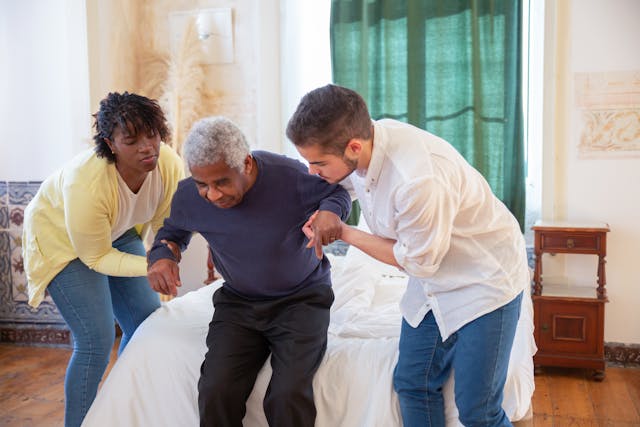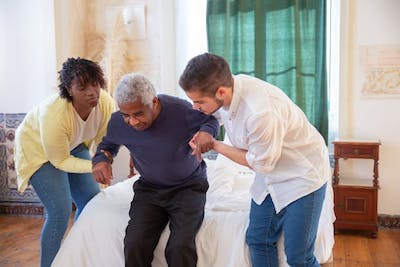Your loved ones may have a number of difficulties as they become older, which may affect their general well-being, mental health, and physical health. It is your responsibility as relatives and caregivers to provide them with the support and assistance they need to overcome these obstacles and keep their independence and dignity. This post will look at seven strategies to assist loved ones in overcoming the difficulties of aging.
Open and Honest Communication
Understanding the wants and worries of your elderly loved ones depends on having effective contact with them. Promote frank and open discussions on their preferences, health, and any difficulties they may be experiencing. Pay close attention to their worries and acknowledge their emotions while demonstrating compassion and comprehension. By keeping the lines of communication open, you may collaborate to discover solutions that satisfy their requirements and deal with problems before they become problems.
Encourage Healthy Lifestyle Choices
Your loved ones’ overall health as they age can be greatly enhanced by encouraging them to adopt healthy habits. To improve physical health and mobility, encourage frequent exercise, even if it’s simply a quick stroll or a light yoga session. To support their dietary requirements and general health, promote a balanced diet full of vegetables, fruits, whole grains, and lean meats. In order to fight loneliness and isolation, please encourage them to continue being socially active by getting involved in clubs, volunteer work, and community events.
Assist with Daily Tasks

Your loved ones may need help with everyday chores that they used to complete on their own as they get older. Assist with housework, food shopping, meal preparation, and getting to and from social events or doctor’s visits. Allow them to retain as much autonomy as possible while giving them help when required. Be empathetic and patient with them. Providing useful assistance will help your loved ones feel less stressed and have a more bearable everyday life.
Ensure a Safe and Comfortable Environment
For elders to age in place properly, an atmosphere of security and ease must be created. Make a detailed inspection of their house to find any possible dangers, such as slick flooring, dim lighting, or trip hazards. To lower the danger of falls and accidents, make the required changes, such as adding grab bars to the bathroom, upgrading the lighting around the house, and clearing clutter. If your loved one requires additional assistance, consider vetting nursing homes and other caregiving services in Minnesota or wherever you happen to live. Assisted living facilities offer safe environments for senior citizens, which are equipped with the emergency response systems, mobility assistance, and adapted equipment they need.
Provide Emotional Support
Feelings of loss, sadness, and future-related fear can accompany aging. By giving your loved ones consolation, encouragement, and reassurance, you may help them emotionally. Be there to hear their worries, anxieties, and concerns without passing judgment. To lift their spirits, give them encouraging, kind, and affirming words. Assist them in maintaining relationships with loved ones who can offer affection and emotional support.
Coordinate Medical Care
Your loved ones may need regular medical treatment and assistance as they become older to manage age-related health concerns and chronic diseases. Organize their healthcare by setting up routine examinations, screenings, and doctor’s visits. Maintain a record of their prescriptions, therapies, and medical background to make sure they get the right care. Speak out for their rights and demands inside the healthcare system to guarantee that they get prompt, thorough treatment that is tailored to their specific need.
Plan for the Future
Making decisions about your loved ones’ long-term care and well-being as they age requires planning. Talk about their preferences for financial preparation, living arrangements, and end-of-life care. Assist them in drafting directives for the future, such as powers of lawyer and wills, which will specify their choices for medical care and name decision-makers in the event of incapacity. Depending on their needs and tastes, they might investigate long-term care choices such as assisted living, nursing facility care, or in-home care.
Conclusion
In conclusion, it takes empathy, endurance, and proactive assistance to assist loved ones in overcoming the obstacles that come with aging. You may help your loved ones mature with dignity, autonomy, and quality of life by promoting open communication, supporting healthy lifestyle choices, offering practical assistance, making sure of a safe environment, providing emotional support, arranging medical treatment, and making a future.

